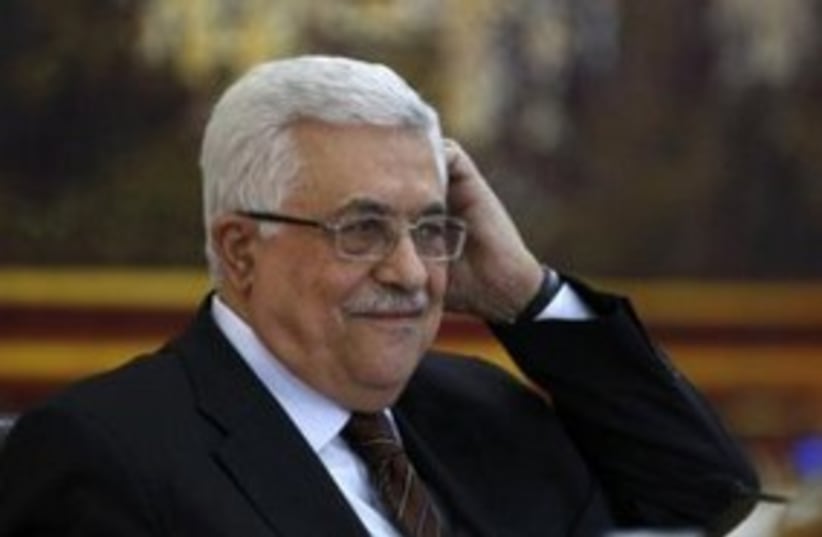RELATED:Sha'ath: Unity deal will allow us to 'liberate Palestine''We don't want to isolate Israel, we only want own state'In an interview with Reuters, Abbas said negotiations remained the best option for bringing about the creation of an independent state."We will review ... the steps we will take -- persisting with negotiations as the fundamental way to achieving a resolution," Abbas said. "If we fail in reaching this solution, then we confirm that we will go to the United Nations."The Palestinians currently have the status of UN observers without voting rights, but are hoping that at September's General Assembly they can persuade other nations to accept them as a sovereign member."Israel believes that if we go to the United Nations we will work to isolate it and delegitimize it," Abbas said."This is not at all possible because we do not want to isolate Israel or to delegitimize it. On the contrary, we want to co-exist with it," he added.US-brokered negotiations broke down last September in a dispute over continued settlement building in the West Bank.In a bid to break the deadlock, Obama said in a major policy speech last week that a future Palestinian state should be based on the borders as they existed on the eve of the 1967 Middle East, with land swaps mutually agreed with Israel.Netanyahu immediately rejected the proposal saying it would leave Israel with "indefensible" borders. But Abbas described the idea as "a foundation with which we can deal positively".Jordanian Foreign Minister Nasser Judeh told Reuters in an interview that Israel will not gain security by clinging to territory beyond the 1967 West Bank frontier. "It is peace that will bring Israel security, not increasing the width of Israel or finding a military solution to defending (its) borders."
'We will pursue UN state recognition unless talks resume'
Abbas reconfirms that Palestinians not seeking to isolate Israel on int'l stage, "on the contrary, we want to co-exist with it."

RELATED:Sha'ath: Unity deal will allow us to 'liberate Palestine''We don't want to isolate Israel, we only want own state'In an interview with Reuters, Abbas said negotiations remained the best option for bringing about the creation of an independent state."We will review ... the steps we will take -- persisting with negotiations as the fundamental way to achieving a resolution," Abbas said. "If we fail in reaching this solution, then we confirm that we will go to the United Nations."The Palestinians currently have the status of UN observers without voting rights, but are hoping that at September's General Assembly they can persuade other nations to accept them as a sovereign member."Israel believes that if we go to the United Nations we will work to isolate it and delegitimize it," Abbas said."This is not at all possible because we do not want to isolate Israel or to delegitimize it. On the contrary, we want to co-exist with it," he added.US-brokered negotiations broke down last September in a dispute over continued settlement building in the West Bank.In a bid to break the deadlock, Obama said in a major policy speech last week that a future Palestinian state should be based on the borders as they existed on the eve of the 1967 Middle East, with land swaps mutually agreed with Israel.Netanyahu immediately rejected the proposal saying it would leave Israel with "indefensible" borders. But Abbas described the idea as "a foundation with which we can deal positively".Jordanian Foreign Minister Nasser Judeh told Reuters in an interview that Israel will not gain security by clinging to territory beyond the 1967 West Bank frontier. "It is peace that will bring Israel security, not increasing the width of Israel or finding a military solution to defending (its) borders."